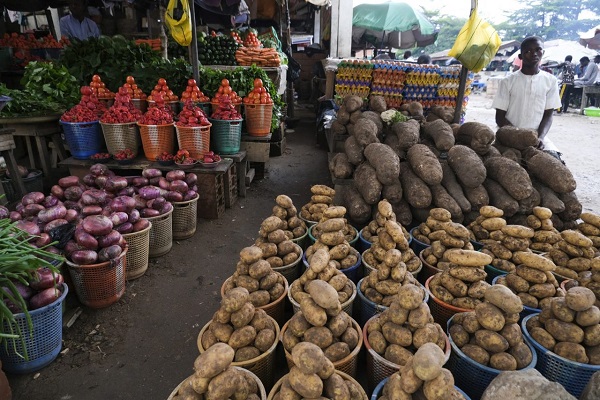• Nigeria accounts for 67%, Ghana 10% of global output
The Federal government has raised concern over the inability of the country to export yam despite accounting for 67 per cent of the global output.
Of great concern to the government is the fact that Ghana, which produces a meager 10 per cent of the global output has its earning from export of yam grow from $18.48m in 2015 to $39.7m in 2021.
The Permanent Secretary, Federal Ministry of Agriculture and Rural Development (FMARD), Ernest Umakihe, said if Ghana that produces only 10 per cent can achieve such feat, Nigeria can earn six times more than Ghana based on her production capacity.
While speaking at a stakeholders workshop on repositioning yam as an export crop, Umakihe said Nigerian’s first attempt at exporting yam was by Nasarawa State Government in 2009 with 8.5 metric tonnes on June 8, 2009 and within the same month another 66 metric tonnes were exported in two shipments, followed by Oyo State, but without success.
“It was only in 2017 that the Federal Ministry of Agriculture under the leadership of Chief Audu Ogbeh, then Minister Federal Ministry of Agriculture and Rural Development organised the first flag-off ceremony with a batch of 72 tons to UK and USA. I believed, these were done without proper planning before the execution. Aside the mentioned attempts, nothing much has been heard of the yam export from Nigeria,” he added.
He lamented that despite being the leading producer of fresh yams in the world, it is unfortunate that Nigeria is nowhere in the map of yam exporting countries.
Umakihe expressed concern that with China delving into yam exportation, and considering Nigerians taste for imported goods, Chinese yam may soon be found in Nigerian kitchen if care is not taken, thereby creating more unemployment for Nigerians and reducing income of farmers.
Speaking on the theme of the workshop: ‘Prospects and Challenges of yam export in Nigeria,’ he said it is the duty of Nigerians to find out what went wrong and how to address.
He stated: “If we must have sustainable food security for our teeming population of over 200 million Nigerian people and have enough to export to other countries, there is the need to critically examine the factors militating against quality production and export of our major commodities of which yam is one of them.”
Umakihe noted that the workshop is very timely as Nigeria is diversifying its economy towards non- oil export commodities, noting that agriculture remains the best option and with the country’s comparative advantage on yam, the country deserves to create wealth along its value chain.
He mentioned that to reposition yam as an export crop, it is important to come up with deliberate action to take yam production, processing and marketing to the next level in line with international best practices.
The Permanent Secretary highlighted things to be done to reposition the value chain for export to include: incorporating major stakeholders in yam value chain, partnering and collaborating with complementary organisations both nationally and internationally, as well as establishing the process and regulations to ensure competitive and profitable yam business.



